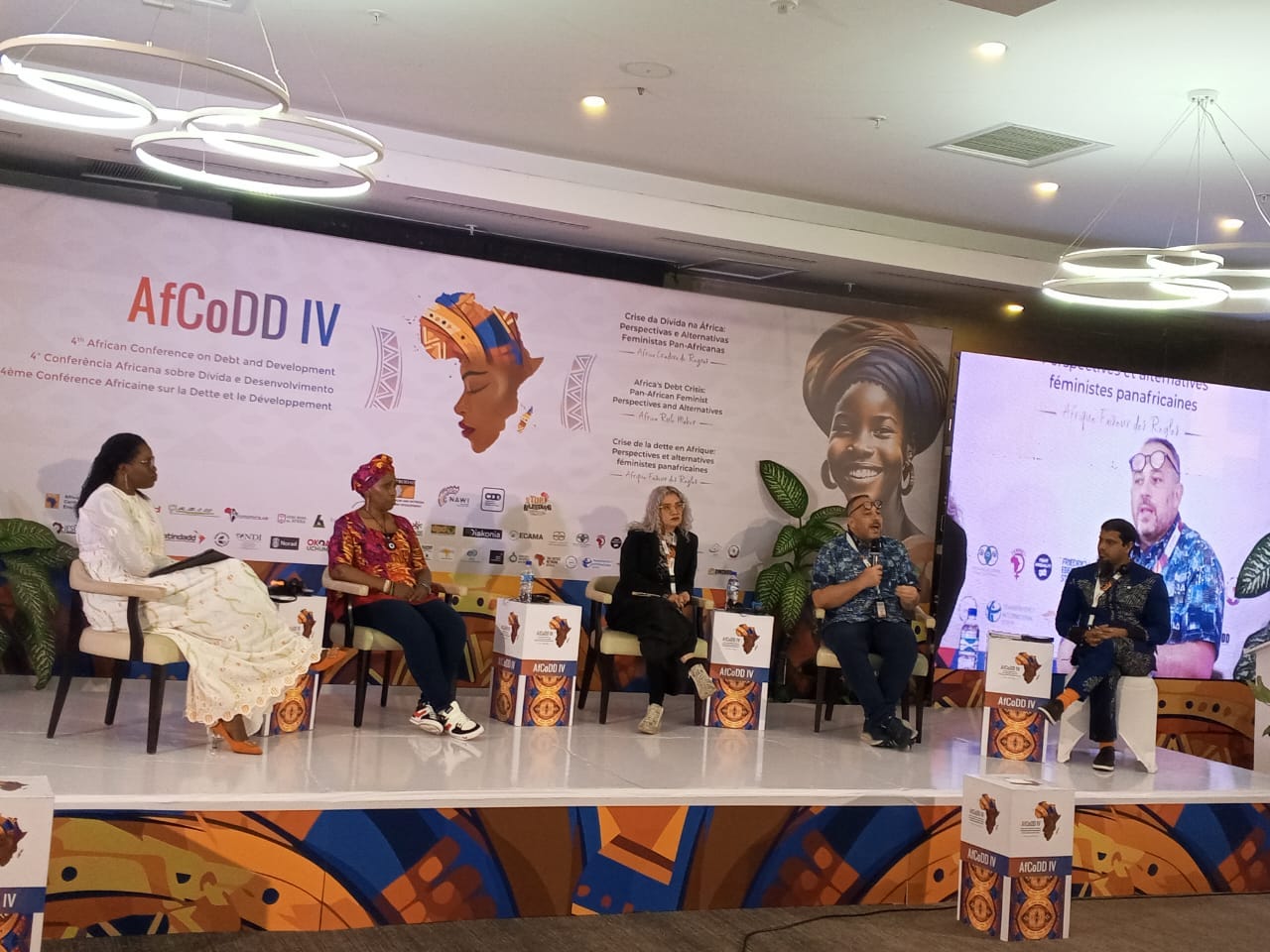Khanyisile Tshabalala-Litchfield Urges Cultural Shift, Gender Equity at Debt Conference
Tshabalala-Litchfield shared a personal anecdote about how her 11-year-old daughter challenged gender norms in their home, illustrating the potential for younger generations to drive change.
MAPUTO, Mozambique— Khanyisile Tshabalala-Litchfield, a prominent member of the African Parliamentary Network on Illicit Financial Flows and Tax (APNIFFT), called for a fundamental shift in approach to gender issues, emphasizing equity over equality and the abolition of customary laws that hinder women's progress, during the final day of a debt crisis conference in Mozambique, writes Winston Mwale.
Khanyisile Tshabalala-Litchfield delivered her remarks at the 4th African Conference on Debt and Development (AfCoDD IV) on August 30, 2024.
The conference, themed "Africa's Debt Crisis: Pan-African Feminist Perspectives and Alternatives," brought together delegates from across the continent to discuss innovative approaches to addressing Africa's debt challenges through a feminist lens.
Speaking during the final session, "Collective Action – Linking the People, Politics, Power, and Processes," Tshabalala-Litchfield emphasized the need for gender-specific research and disaggregated data to address barriers facing women in politics and society.
"We need specific gender research, and specific gender disaggregated data at all levels of society," Tshabalala-Litchfield said.
"It's no longer enough to say, 'The laws are there, but women don't end up.' What are the things that make women not to end up?"
The lawmaker highlighted the discrepancy between legal equality and practical equity, citing South Africa as an example where gender equality laws coexist with high rates of gender-based violence.
She noted that while South Africa leads in gender equality statistics at over 60%, followed by East Africa at just over 50%, these figures don't necessarily reflect true equity.
Tshabalala-Litchfield called for the abolition of customary laws, which she described as a significant obstacle to women's advancement.
"How do you pass laws on equality, but still keep customary law?" she asked, explaining that such laws often treat women and children as property of men.
Tshabalala-Litchfield outlined three key recommendations:
1. Conduct gender-specific research and collect disaggregated data across all African regions.
2. Launch a campaign to abolish customary laws across Africa.
3. Encourage intergenerational dialogue, allowing young people to contribute to societal changes.
Tshabalala-Litchfield also challenged men to examine their roles in perpetuating gender inequalities, even in their own households.
"The onus is also on the men in the room," she said.
"Even as you sit here, it starts at a personal level. What are you doing in your household?"
Tshabalala-Litchfield shared a personal anecdote about how her 11-year-old daughter challenged gender norms in their home, illustrating the potential for younger generations to drive change.
"Let's allow the younger generation to change these spaces. They are more fearless than us," she added.
Tshabalala-Litchfield's remarks touched on the historical context of gender roles in Africa, noting that some ancient African societies were matriarchal or matrilineal.
She questioned the factors that led to the current patriarchal systems, asking, "How far have we fallen, as Africa?"
As the conference concluded, participants were left to grapple with the complex interplay between cultural norms, legal frameworks, and the ongoing struggle for gender equity in African politics and society.
Tshabalala-Litchfield's call for a shift from equality to equity, coupled with her emphasis on abolishing customary laws, presented a challenging but potentially transformative path forward for addressing both gender issues and the broader debt crisis facing the continent.




